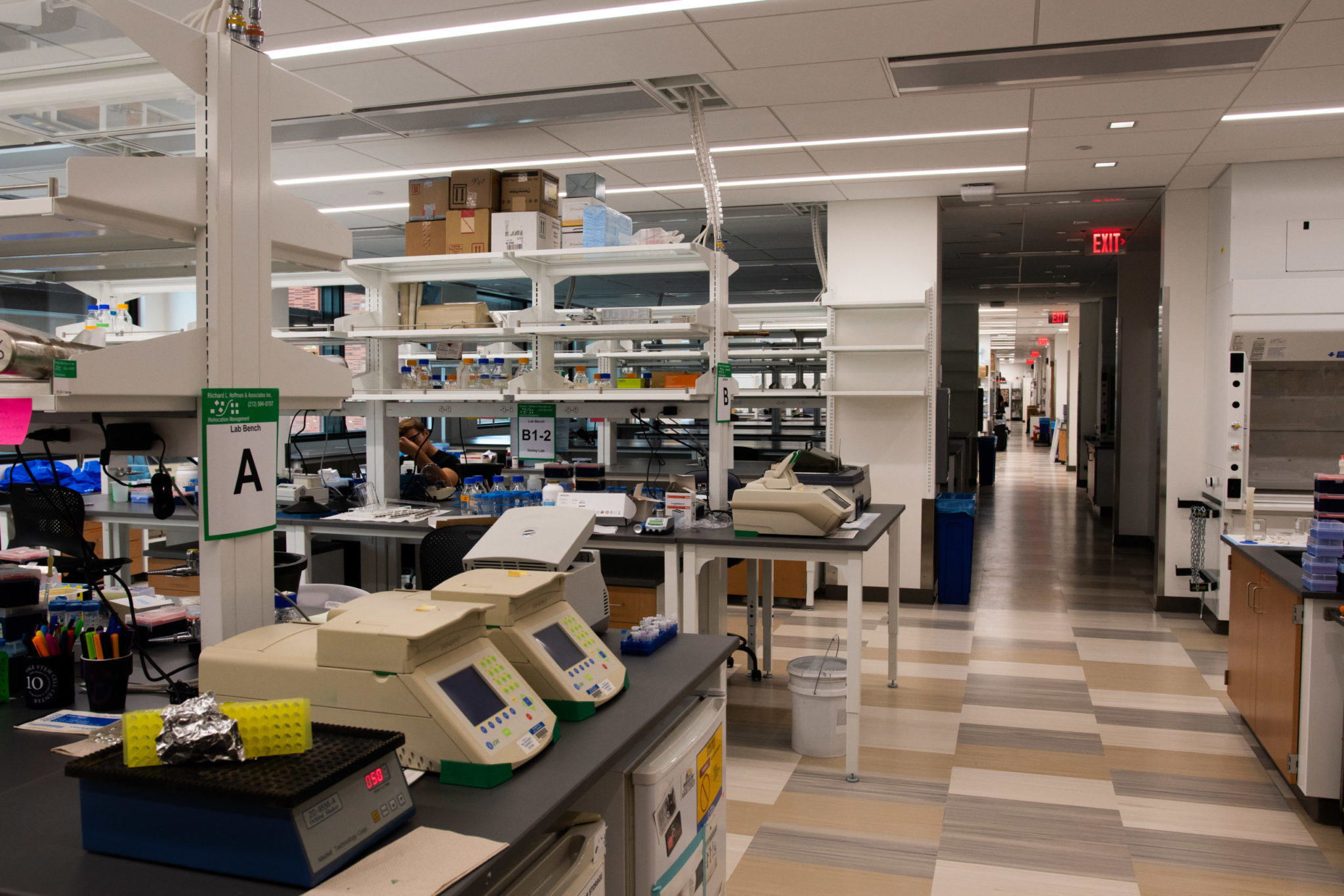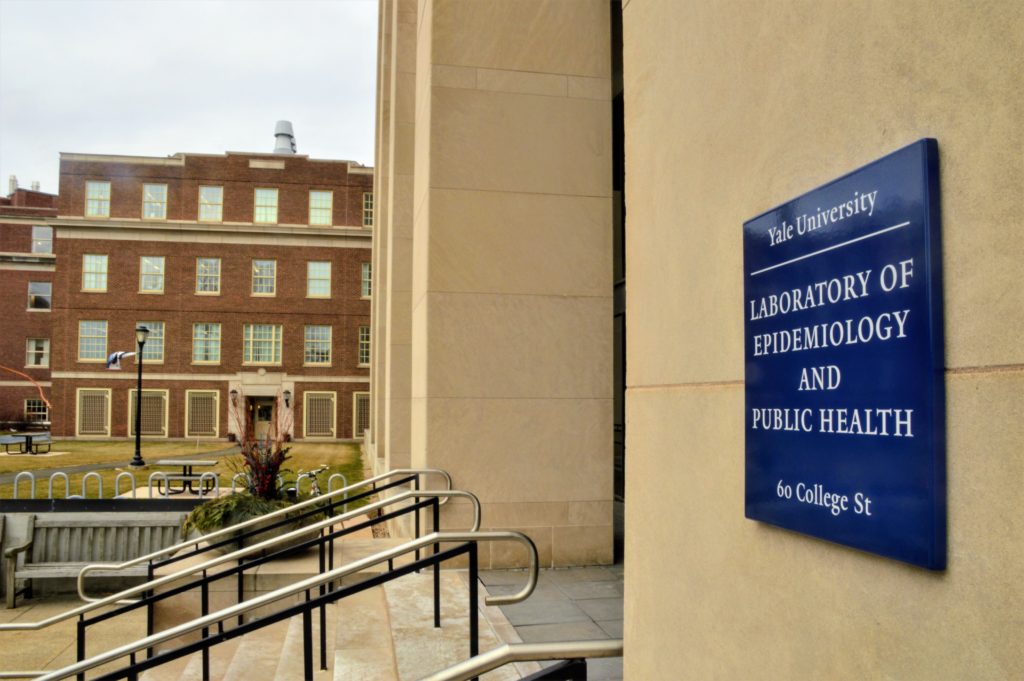
Lukas Flippo, Photo Editor
The University has chosen multiple labs across the country to use the SalivaDirect COVID-19 testing protocol developed by Yale researchers.
The method, developed by Yale epidemiology researchers Anne Wyllie and Nathan Grubaugh, uses saliva samples to test for the novel coronavirus, instead of specimens from nasopharyngeal swabs. The method is cheaper and faster than other test types, which require an extra nucleic acid extraction step. SalivaDirect received Emergency Use Authorization from the Food and Drug Administration on Aug. 15. Under the EUA’s terms, Yale can approve other labs to use the protocol.
“This is a great transition point where now we’re truly starting to be operational,” Grubaugh said. “We can focus on these labs that are already partnering with public schools across the country and we really hope to be able to impact our community and our surrounding community in the same way.”
The first lab to pick up the protocol was the University’s own Medical Diagnostics Lab, a part of the Department of Pathology at the School of Medicine. Additionally, Yale recently extended its authorization to Access Medical Laboratories, Hennepin County Medical Center and Mirimus, Incorporated, located in Florida, Minnesota and New York respectively. The three labs signed their agreements last week, and Hennepin was up and running with saliva tests the next day, Wyllie told the News.

The researchers have already received about 350 requests from additional labs, Wyllie said.
“[It’s] starting up in a lot of areas or labs that weren’t doing tests otherwise,” Wyllie said. “So they’re adding new tests to their local communities, and we’re hoping that as they have more and more testing they can help with competition to drive prices down.”
To receive designation per Yale’s Emergency Use Authorization, a lab must be high-complexity CLIA-certified, a quality standard for labs working with human specimens. Labs must fill out a form and agree to follow the SalivaDirect protocol exactly to apply for designation.
The next challenge is to bring down the price per test to make it more accessible. The lab currently tests saliva samples from outside organizations for clinical diagnostic purposes. Currently, the lab at Yale charges $59 per test, including costs for reagents, labor, space, instruments and regulatory compliance, the laboratory director Pei Hui said. The lab may be able to offer the test at $25, he added.
But Grubaugh said future iterations of the test should cost under $5 to be truly accessible to the public, including elementary schools and universities.
The lab at Yale now processes between 500 and 600 saliva samples each day, and plans to expand the number should demand rise, Hui said. The University would also have to allocate more space and labor to the program to meet that potential demand. Yale New Haven Hospital is currently setting up saliva sample collection sites for future SalivaDirect testing.

While it has been publicized that the SalivaDirect runs between $1.29 to $4.30 per test, this price only includes the reagent, and therefore the lab is unable to offer the test at the low cost, Hui said.
But, he added, the test has been revolutionary in avoiding supply shortages with materials for the nasopharyngeal tests. Hui’s lab has run coronavirus tests since April 1, helping process samples for Yale New Haven Hospital and Yale Health. But before the innovation of saliva-based testing, the lab processed nasopharyngeal samples at a price of $99 per NP swab test. Throughout the pandemic, the testing reagents were often backlogged, frequently interrupting the lab testing, Hui said.
“I think everybody suffered from it,” Hui said. “We are no exception…. It was a huge problem.”
SalivaDirect is an open-source protocol, which means designated labs can follow Yale’s instructions in their own labs, and do not require any equipment from the University.
Rose Horowitch | rose.horowitch@yale.edu







